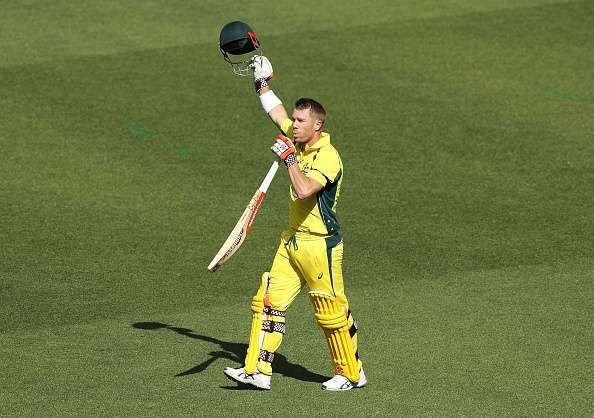
ICC ODI Team of the Year - Stats of players who made it
In our previous article, we went through the stats of the 12 players who made it to the ICC Test Team of the Year. There were a couple of surprise inclusions like Dale Steyn, who had only participated in 4 Tests and had just one excellent match to talk about. In this piece, we will take a look at the stats of the 12 players who made it to the ICC ODI Team of the Year.
These performances were racked up by the players during the voting period between September 2015 and 2016. There are quite a few surprises here as well, most notable being Ravindra Jadeja, who had hardly anything to show in his shorter format performances during the voting period, even if we consider his numbers in T20Is.
Another surprise is the non-inclusion of Joe Root, the second highest run-getter in ODIs with an average of 60.13, the highest in the top 10 run-getters during the voting period. Similarly, Matt Henry doesn’t find a place despite his 23 wickets at 15.95, the lowest average amongst the top 20 wicket-takers during the voting period, one more than Starc’s 22 despite playing four games fewer.
David Warner
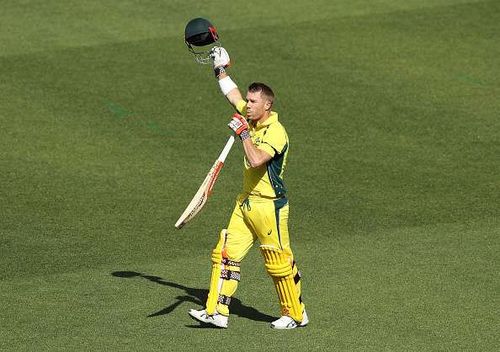
David Warner is a surprise entrant to the list, as he finds himself in the 16th position on the list of highest run-getters during the voting period. Nevertheless, Warner was impressive with 609 runs in 15 innings at an average of 46.84 and a strike-rate of 98.86.
His best innings came against India in Sydney and against New Zealand in Wellington when he took the bowlers apart. He played an excellent knock against South Africa as well, a blistering 109 that helped Australia post 288 and win the game.
| Name | Innings | Runs | Average | Strike-rate | 100s | 50s |
| David Warner | 15 | 609 | 46.84 | 98.86 | 2 | 4 |
Quinton de Kock
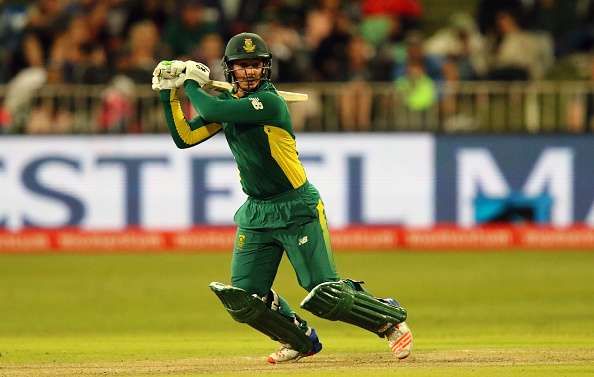
Quinton de Kock is one of the two wicket-keepers in this side and is probably still climbing up the charts, with his best yet to come. He amassed 793 runs in 16 innings at a phenomenal 56.64 despite maintaining a strike-rate or 97.42, cracking 4 centuries and a half-century – that’s some conversion rate.
De Kock didn’t have a great second half of the year but with his lowest score being 22 in the first 9 matches during the voting period, he probably did enough to take this place. He scored two centuries for SA in the victorious series against India in India and two more in South Africa against England.
| Name | Innings | Runs | Average | Strike-rate | 100s | 50s |
| Quinton de Kock | 16 | 793 | 56.64 | 97.42 | 4 | 1 |
Rohit Sharma
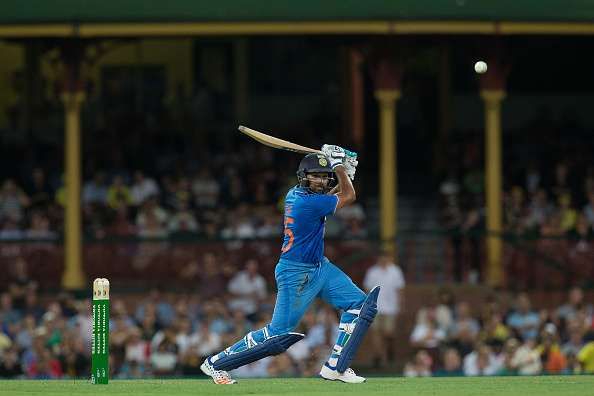
Rohit is India’s best ODI batsman, scoring 696 runs at a whopping average of 77.33 and a strike-rate of 100.86 in just 10 innings. Rohit’s average is the highest amongst the top 20 run-getters during the voting period.
The best part about the opener’s tally is that those 10 innings came against two top teams – South Africa and Australia. Rohit scored 171*, 124 and 99 in Perth, Brisbane and Sydney, the last one setting the scene for a fabulous 331-run chase, India’s lone victory in the ODI series. His highest knock of 171* though, ended in a losing cause against South Africa.
| Name | Innings | Runs | Average | Strike-rate | 100s | 50s |
| Rohit Sharma | 10 | 696 | 77.73 | 100.86 | 3 | 2 |
Virat Kohli
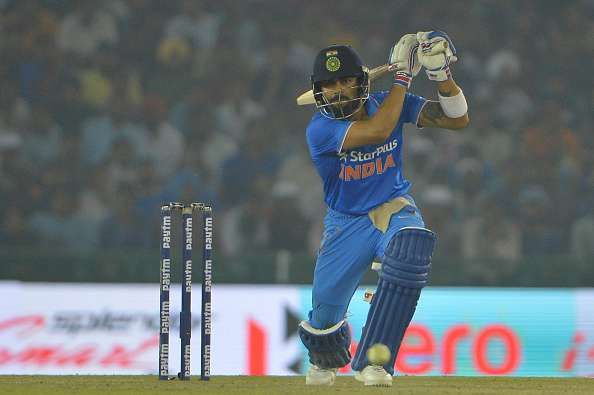
Virat Kohli, who led India to a record 18-match unbeaten streak along with a 4-0 thumping of England to settle old scores, didn’t surprisingly make it to the ICC Test team of the year. Nevertheless, he also became the only player to average over 50 in Tests, ODIs and T20Is and is probably the planet’s best short format batsman by a country-mile.
Kohli racked up 626 runs at 62.60 with a strike-rate of 94.13. The Delhiite’s three centuries came against Australia and South Africa to go along with three fifties. His 138 against South Africa in Chennai in a winning cause was a master-class in particular.
| Name | Innings | Runs | Average | Strike-rate | 100s | 50s |
| Virat Kohli | 10 | 626 | 62.6 | 94.13 | 3 | 3 |
AB de Villiers
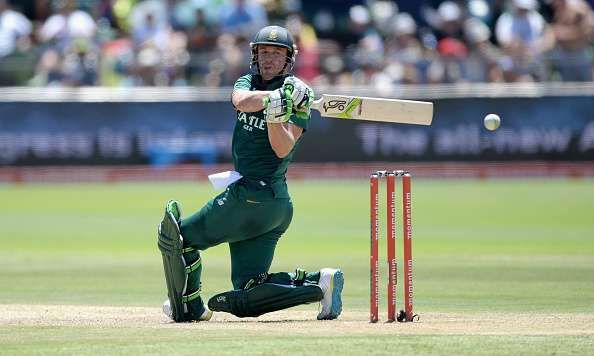
South Africa’s genius smashed four centuries, two unbeaten. The first one, scored in 73 balls helped thwart India in a close tie when South Africa won by just 5 runs. His second unbeaten century helped beat England.
The best of all his centuries though was the 61-ball 119 that helped South Africa score a massive 438 runs to beat India by a whopping 214 runs at Wankhede. AB de Villiers’ strike-rate is third amongst the top 20 run-getters behind Jos Buttler’s and Martin Guptill’s. AB de Villiers amassed 697 at 58.08 in just 15 innings.
| Name | Innings | Runs | Average | Strike-rate | 100s | 50s |
| AB de Villiers | 15 | 697 | 58.08 | 108.9 | 4 | 1 |
Jos Buttler
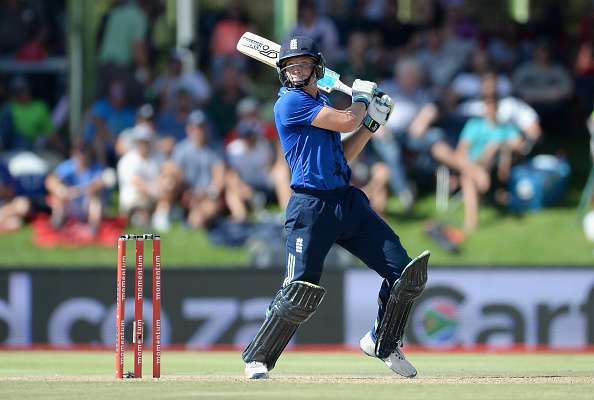
You could call Buttler the best wicket-keeper batsman in ODI cricket right now although Quinton de Kock will give him stiff competition. But then, we could go ahead and say he is the best lower order ODI batsman right now as well, with or without the wicket-keeping gloves.
Buttler’s 136.24 is the highest strike-rate amongst the top 50 run-getters during the voting period. The second highest is Maxwell’s 124. While the Australian’s runs came at an average of 30.30, Buttler scored his runs at 55.36 apiece defining England’s ODI resurgence in many ways.
The Englishman had an excellent run between November and February when he scored 49*, 116*, 105 and 48* in four games, two against Pakistan in Dubai and two against South Africa in their own den. Buttler was Player of the Series against Pakistan, when England won 3-1, while also helping England run South Africa close with a final score-line of 2-3.
His 76-ball 105 was probably the highlight, that helped England win the first ODI of the series.
| Name | Innings | Runs | Average | Strike-rate | 100s | 50s |
| Jos Buttler | 16 | 609 | 55.36 | 136.24 | 2 | 3 |
Mitchell Marsh
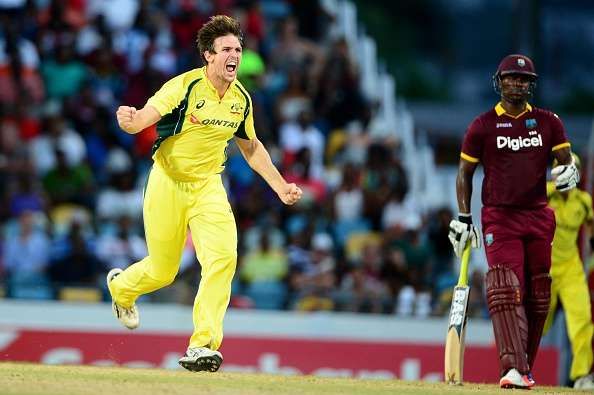
Marsh is probably amongst the best all-rounders in the cricketing world. The Australian scored 562 runs in 17 innings at 51.09 apiece, the runs coming at a strike-rate of 97.56. Marsh could make it to the Australian team as a batsman alone.
The 25-year-old has also managed to stay unbeaten on many an occasion, the best being 102* against India in Sydney that unfortunately came in a losing cause. Marsh was also amongst the top 10 wicket-takers during the voting period picking up 22 wickets at 30.09 apiece in 19 matches with an acceptable economy of 5.47.
Batting
| Name | Innings | Runs | Average | Strike-rate | 100s | 50s |
| Mitchell Marsh | 17 | 562 | 51.09 | 97.56 | 1 | 3 |
Bowling
| Name | Matches | Wickets | Average | Economy | 4w | 5w |
| Mitchell Marsh | 19 | 22 | 30.09 | 5.47 | 1 | 0 |
Ravindra Jadeja
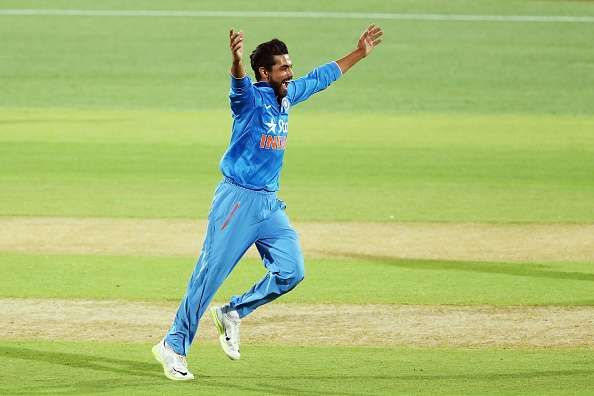
Jadeja is amongst the most surprising entries to the list. His ODI performances during the voting period were almost non-existent. Jadeja had just 4 ODI innings in which he scored 45 runs. He picked up just 3 wickets during the same period in those limited opportunities.
The left-arm spinner’s numbers are slightly better in the T20Is. He picked up 17 wickets at 24.29 in T20Is but scored just 19 runs. Interestingly, his own team-mates Ravichandran Ashwin, with 27 wickets and Jasprit Bumrah, who with 28 wickets is the leading wicket-taker in T20Is, are way ahead of him in terms of performances.
Even in ODIs, other deserving spinners like Adil Rashid with 27 wickets and Adam Zampa with 20 wickets in just 11 matches, would feel hard done by.
| Name | T20I Innings | Wickets | Average | Economy | 4w | 5w |
| Ravindra Jadeja | 17 | 17 | 24.29 | 7 | 0 | 0 |
Mitchell Starc
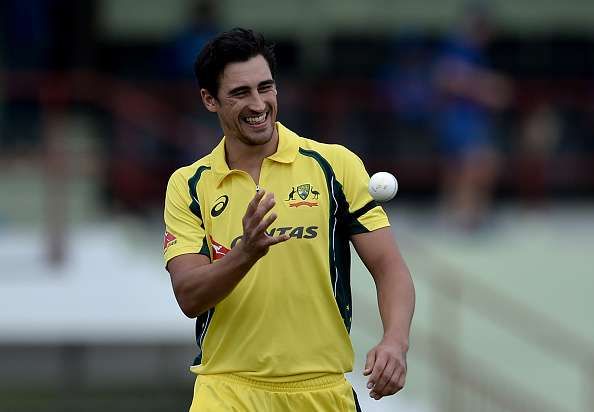
Starc has been the best ODI fast bowler in the world for a while now. His numbers back up his presence. In 13 matches, he picked up 22 wickets at an average of 25.54 with a miserly economy of 4.93. The best thing about Starc’s performances is that he has managed to pick up at least couple of wickets in 7 out the 13 matches, highlighting his impact.
The left-arm seamer had just one bad match against England in Manchester. That is the sign of a quality bowler – someone who rarely has bad days because one bad spell can gift the game away. Another of those 13 matches was washed out. Starc picked up three wickets in an innings four times.
| Name | Matches | Wickets | Average | Economy | 4w | 5w |
| Mitchell Starc | 13 | 22 | 25.54 | 4.93 | 0 | 0 |
Kagiso Rabada
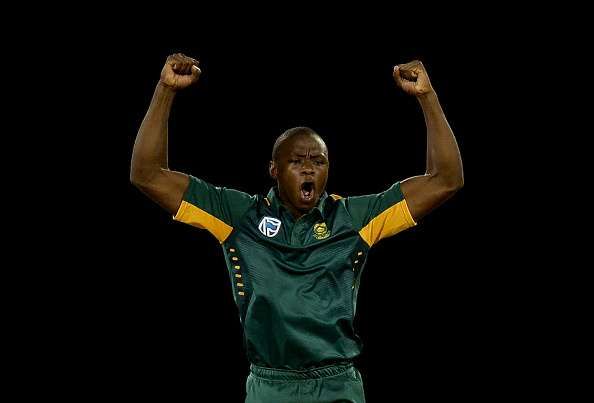
Rabada would feel hard done by that Mustafizur Rehman won the Best Emerging Player ahead of him. Rabada has been a sensation in Tests as well as ODIs, with a great skill set and a very level head, backed with decent pace of delivery and the ability to move the ball.
The South African picked up 26 wickets in 15 ODIs at an excellent average of 23.46 coupled with an economy of 4.84. Rabada picked up wickets in 10 out of the 14 matches he had bowled in and managed three or more wickets, an impactful contribution in 6 of those 14 matches under a wide variety of conditions. He also has 14 wickets from 10 T20Is at 22.92 apiece.
| Name | Matches | Wickets | Average | Economy | 4w | 5w |
| Kagiso Rabada | 15 | 26 | 23.46 | 4.84 | 2 | 0 |
Sunil Narine
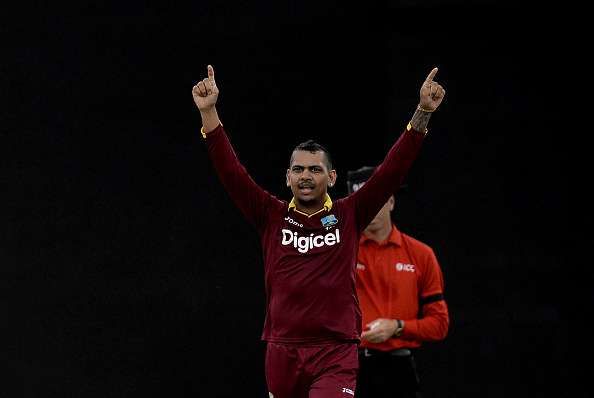
Narine, despite all the talk around his action, has continued to trouble batsmen around the world and picks his spot as the preferred spinner in this powerhouse team. Narine picked up 16 wickets in 10 matches at 22.31. What sealed his place in this team is not so much the wickets (Tahir would feel demotivated after getting the 12th man spot – he leads the wicket charts) but the economy – 3.9.
The West Indian’s numbers received a big bump thanks to his 6-for against South Africa, one of the best in ODIs during the voting season. He managed to pick two three-wicket hauls. Narine didn’t have a single bad match amongst the 10 games as is suggested by his economy, showing how reliable he was with the ball.
| Name | Innings | Wickets | Average | Economy | 4w | 5w |
| Sunil Narine | 10 | 16 | 22.31 | 3.9 | 0 | 1 |
Imran Tahir
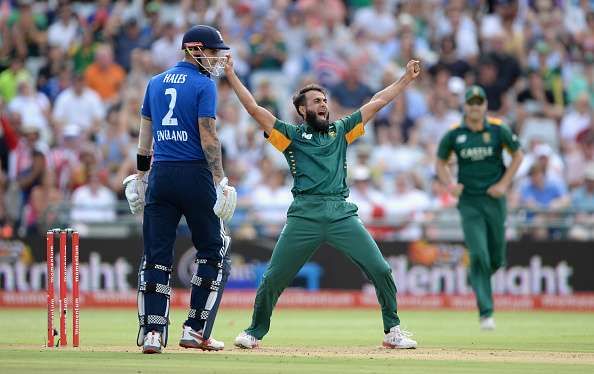
Tahir was the highest wicket-taker in ODIs during the voting period, managing to pick 28 wickets in 15 innings at 27.14 with an economy of 5.42. He picked up wickets in all but four games. The highlight of his year was the 7-wicket haul at Basseterre against West Indies wrecking them in a tough chase. The steep target is what probably counted against him.
He picked up two or more wickets in an innings an impressive 10 times out of 15 and had just three bad games in terms of conceding runs without picking wickets. Tahir edged out bowlers like Rashid and Zampa.
| Name | Innings | Wickets | Average | Economy | 4w | 5w |
| Imran Tahir | 16 | 28 | 27.14 | 5.42 | 0 | 1 |